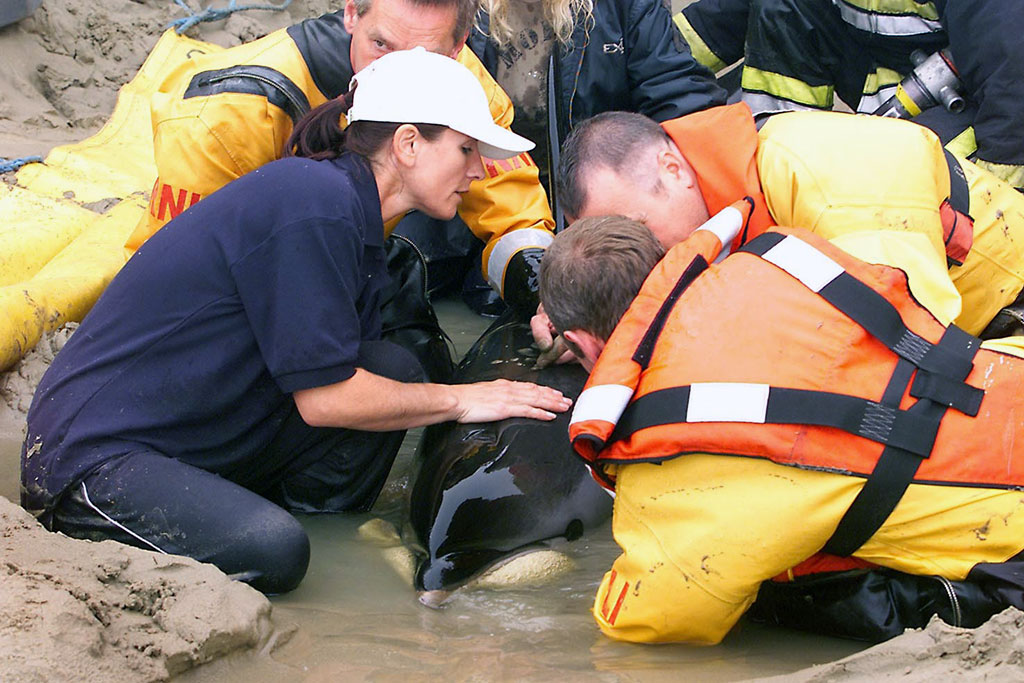
East Sussex WRAS has several trained marine mammal medics and works closely with British Divers Marine Life Rescue.
Cetaceans (whales, dolphins, and porpoises), get stuck on beaches (strand) for various reasons. This can be attributed to geomagnetic contours intersecting beaches, gently sloping beaches that hinder echolocation, pursuing prey onto shores, disturbance, unusual underwater activity, unfamiliar coastal layouts or atypical weather conditions. Additionally, social factors like following a sick or injured animal onto the beach can lead to stranding. Illness and injury are also common causes of cetacean strandings.
Quickly contact WRAS or BDMLR from your mobile, ensuring to note the precise location where the stranded animal is – or use What3words.
For further information on cetacean stranding’s or on how to become trained as a Marine Mammal Medic please go to BDMLR’s website www.bdmlr.org.uk. BDMLR can be contacted on 01825 765 546, 24 hours a day.

